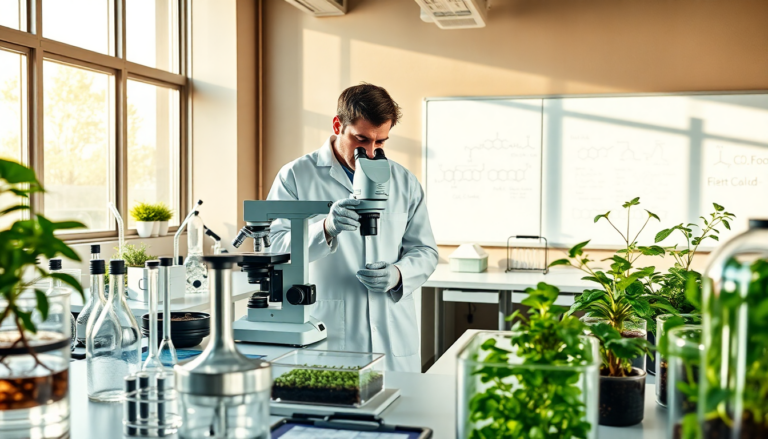Argomenti trattati
Biotechnology is an exciting and ever-evolving field that brings together biology and engineering to create innovative solutions across a variety of industries. But what does that really mean? Essentially, biotechnologists leverage living organisms and biological systems to tackle some of society’s most pressing challenges. From groundbreaking medical breakthroughs to sustainable farming practices, the potential of biotechnology to improve our quality of life is nothing short of remarkable.
The Story Behind Biotechnology and Its Fundamental Principles
The term “biotechnology” was first introduced by Károly Ereky in 1919, when he envisioned using living organisms to convert raw materials into valuable products. At its heart, biotechnology is all about manipulating biological entities—think bacteria, yeast, and plants—to achieve specific objectives or produce important substances. Over the years, this field has expanded vastly, finding applications not just in healthcare, but also in agriculture, environmental science, and industry.
One of the game-changing techniques in biotechnology is genetic engineering, which allows scientists to alter the genetic makeup of organisms to express desired traits. This can involve moving genes from one organism to another, leading to innovations like genetically modified crops that boast higher yields and greater resistance to pests. Other methods, such as tissue culture and fermentation, have played crucial roles in producing essential products like antibiotics and biofuels, making significant contributions to societal needs.
Biotechnology’s Wide-Ranging Impact Across Industries
The versatility of biotechnology means that its benefits are felt across multiple sectors. In healthcare, for instance, biotechnology has transformed drug development, paving the way for life-saving medications, including biologics and monoclonal antibodies. Have you heard of personalized medicine? This approach tailors treatments to an individual’s genetic profile, which enhances therapeutic effectiveness while reducing side effects.
When it comes to agriculture, biotechnology has led to the creation of genetically modified organisms (GMOs) that are better equipped to handle environmental challenges and pests, thereby ensuring food security and sustainability. A prime example is Golden Rice, engineered for greater nutritional value, which highlights how biotechnology can combat malnutrition while boosting agricultural productivity. Additionally, the concept of bioremediation—using microorganisms to clean up polluted environments—illustrates biotechnology’s vital role in environmental conservation.
However, as biotechnology rapidly advances, it also raises important ethical and societal questions. Issues surrounding genetic modification and intellectual property rights are hot topics in ongoing discussions. Regulatory frameworks differ significantly across the globe, with some nations embracing biotechnology while others impose strict restrictions. This disparity complicates international collaboration and the sharing of biotechnological innovations.
As the field continues to progress, the demand for comprehensive regulations that ensure safety while promoting innovation becomes increasingly critical. Stakeholders face the challenge of balancing ethical considerations, public perceptions, and scientific progress to responsibly unlock biotechnology’s full potential.
Looking Forward: The Future of Biotechnology
What’s next for biotechnology? Looking ahead, this field is set to play a transformative role in tackling global challenges, especially in healthcare and sustainability. The rise of synthetic biology, which melds biology with engineering principles, holds the promise of cost-effective and environmentally friendly solutions across industries. As advancements in bioinformatics and genetic engineering unfold, we can expect unprecedented breakthroughs in both medicine and agriculture.
With the growing demand for sustainable products and biofuels, the biotechnology sector is likely to flourish, driven by innovations in genetically modified crops that improve agricultural efficiency. The potential for groundbreaking developments in personalized medicine and novel therapeutics offers exciting prospects for enhancing human health and overall quality of life. Are you ready to embrace the future that biotechnology promises?

